News
Championing community energy
Growing institutional support demonstrates REScoop.eu's increasing impact on EU and national energy policy
As the European Elections approach, during the month of May, the movement for community energy has gained remarkable momentum. Our Manifesto, “Europe’s energy transition: active energy citizens take ownership” outlining ten critical policy priorities for the upcoming term, has attracted widespread attention and endorsement from policymakers across Europe. This blog post celebrates the growing support from different institutions and stakeholders for REScoop.eu’s vision of a 100% renewable energy future with citizens at its core.
The Commission's support
RepowerEU roundtable with Kadri Simson
To mark the second anniversary of RepowerEU, Commissioner for Energy, Ms. Kadri Simson, invited REScoop.eu among other renewables sector’s stakeholders for a discussion. The meeting provided the opportunity to take stock together on what has been achieved on RepowerEU and discuss what complementary actions would be still needed to further accelerate renewables deployment in the upcoming months.
Kadri Simson emphasised the important role of energy communities in overcoming 'renewables fatigue' and promoting acceptance of renewables. When the Commissioner and her team presented the new Wind Power Action Plan, community participation was prominently mentioned as key for acceptance. REScoop.eu highlighted the importance of direct ownership, where citizens own and share the produced energy at cost price. We should think of community energy beyond a financial construction, it is about democracy and a fully-fledged active role in the energy market. In this regard, we cited the example of the next Belgian offshore zone tender, which includes 10 points for direct citizen participation.
More specifically, we stressed that the potential of community energy is enormous: by 2050, around 45 % of renewable energy production in the EU could come from citizens. We also reflected on the community energy sector response to the energy crisis where many of our members proved their resilience and managed to keep prices low, shielding consumers from market price fluctuations. Moving forward, we asked the Commission to:
Ensure full and effective transposition, implementation, and enforcement of pre-existing EU rules for energy communities;
Ensure a level playing field for energy communities in the energy market, particularly in the sharing and supply of renewable electricity. This includes access to adequate financing, the grid and available support;
Develop an EU-level strategy for how different EU and national actions can support the development of energy communities across the different areas of EU policy including energy, competition, regional policy, and public procurement.
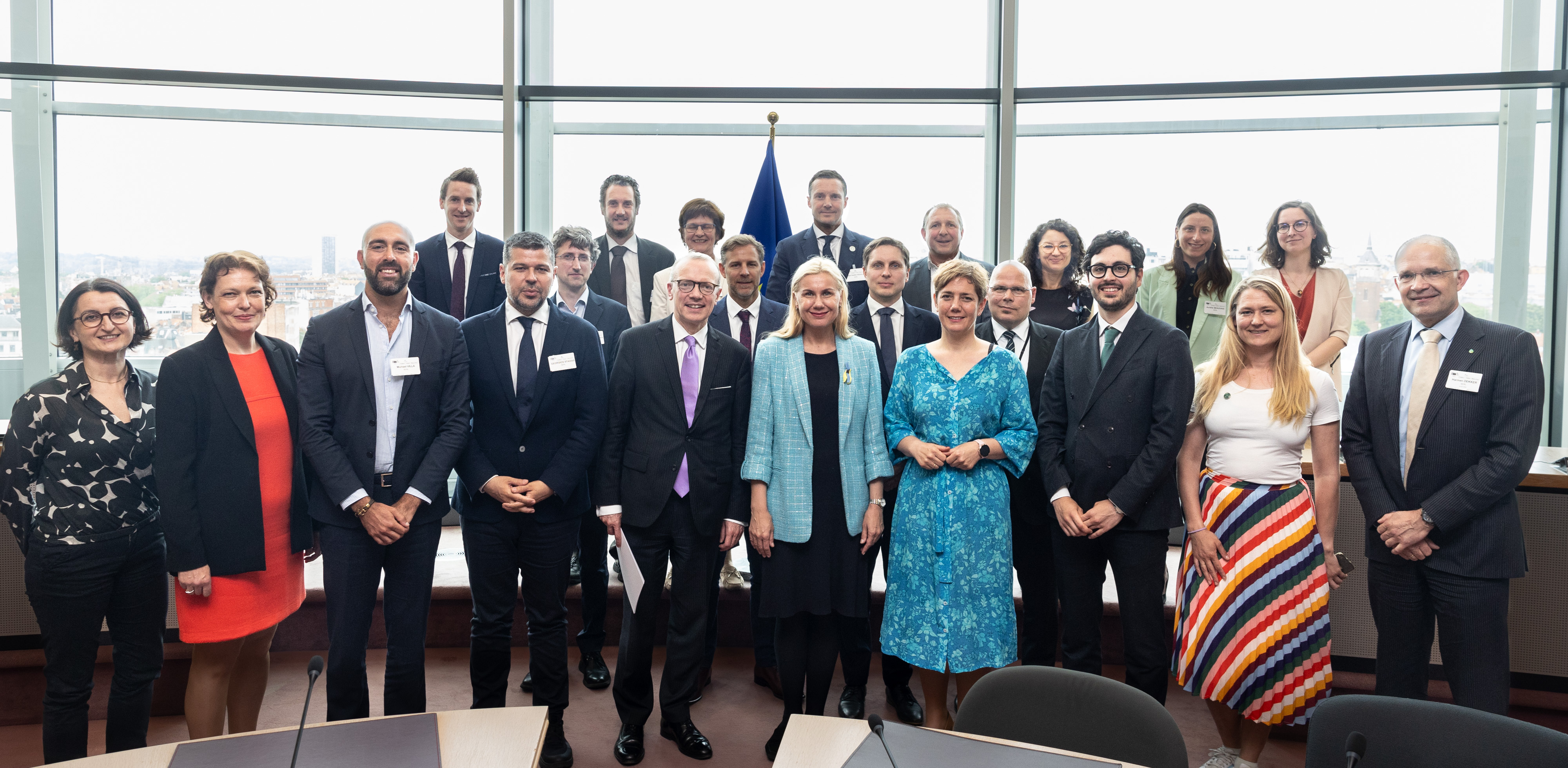
Commission guidance and recommendation documents
On the13th of May, the Commission published a series of recommendations and guidance documents to support Member States in accelerating the deployment of renewable energy. REScoop.eu had submitted relevant consultation responses for the topics of renewables acceleration areas and renewable auction design and we were glad to see that our feedback was taken into account and important references were integrated into these documents to support the growth of energy communities, particularly RECs.
Specifically, the recommendation and guidance on speeding up permit-granting for renewable projects highlights that Member States should implement simplified and proportionate permit-granting procedures for energy communities, including for the connection of community-owned plants to the grid. The guidance on designating renewables acceleration areas highlights that public acceptance of renewable energy projects can be promoted by means of direct and indirect participation of local communities in these projects. Local ownership can be achieved, for example, by giving priority to community-owned projects. Last but not least, the recommendation and guidance on auction design for renewable energy state that Member States should include, when necessary, non-price criteria related to benefits for local communities, such as promoting citizen participation in the projects including via energy communities.
The Council's support
EU Presidency visits REScoop.eu
Belgium, currently holding the Presidency of the European Council, saw its Minister of Energy, Tinne Van der Straeten, sign our Elections Manifesto, becoming a REScoop.eu "Energy Communities Supporter." This endorsement underscores the crucial role of dialogue with, and political backing from, national governments for citizen-led energy initiatives. This endorsement places citizens at the forefront of the energy transition in Belgium and beyond.
In addition to signing up to our Manifesto, we discussed the role of energy communities in Europe’s energy transition, from investing in offshore wind production to renovating district heating networks and tackling energy poverty. Energy communities can play many diverse roles in activating citizens to contribute to meeting national and EU climate and energy objectives, as well as helping grow public support for the energy transition, even amidst the rise of populism across Europe. As the EU’s policy cycle around the Green Deal comes to an end, it is clear that implementation will be the near-term challenge and dialogues between the energy communities movement and high level decision makers like with the Belgian Energy Minister will be essential to unlocking the potential of energy citizens across Europe.
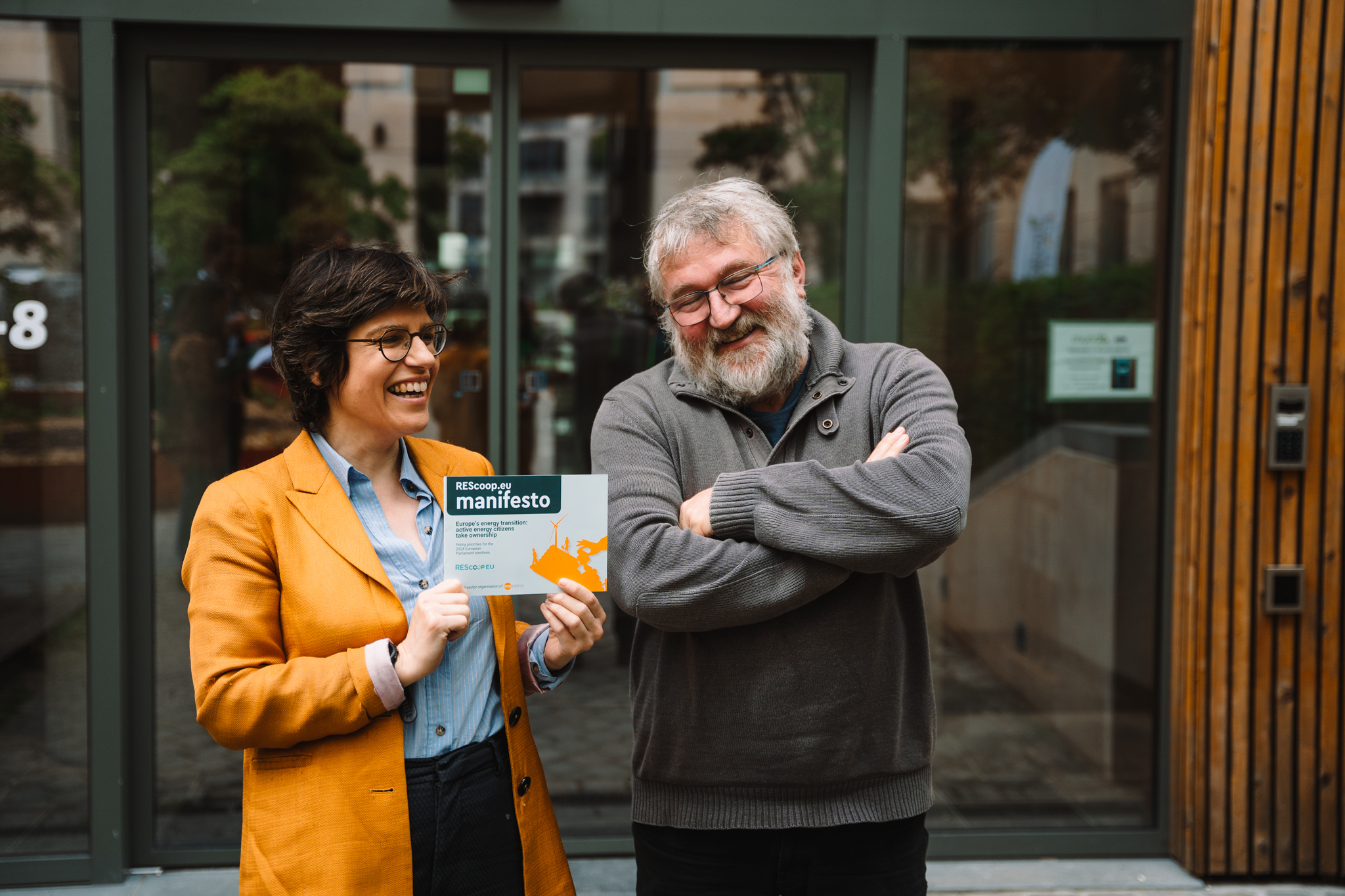
Minister’s lunch meeting and Council Conclusions on the EU’s Grid Action Plan
On the 30th of May, Belgium hosted an Energy Council Meeting in Brussels, attended by the Energy Ministers from all of the EU Member States. Over a Ministerial lunch dedicated to the topic of energy communities, our President, Dirk Vansintjan, provided an account of the growth of energy communities over the last decades, their importance for a successful European energy transition, and highlighted the needs of the sector as it gets started in new Member States.
Ministers then exchanged views on energy communities and citizen participation, acknowledging successes from their own countries, but also highlighting ongoing challenges. The Ministers underlined the need to create a level playing field and integrate energy communities into existing energy markets. The Belgian Energy Minister, in her role as Chair, then called on the Commission to come up with a ‘strategic action plan on energy communities’.
Furthermore, during the Energy Council, the Council adopted Conclusions on the EU’s Grid Action Plan, a key strategic document that will address one of Europe’s most important bottlenecks, which is the lack of capacity on the grid to handle the amount of renewable energy needed to achieve the energy transition. Importantly, the Conclusions call on Member States to closely involve citizens and energy communities when developing energy infrastructure and revisiting grid connection and grid access capacity procedures to ensure a level playing field with other market actors. Moreover, they call on Member States to duly implement the provisions on energy communities.
The Council’s Conclusions give an important signal that energy communities need to be taken into account, not just because of the unique challenges in obtaining grid access, but also because of their potential to help optimise local renewables production with consumption and provide flexibility to the energy system.
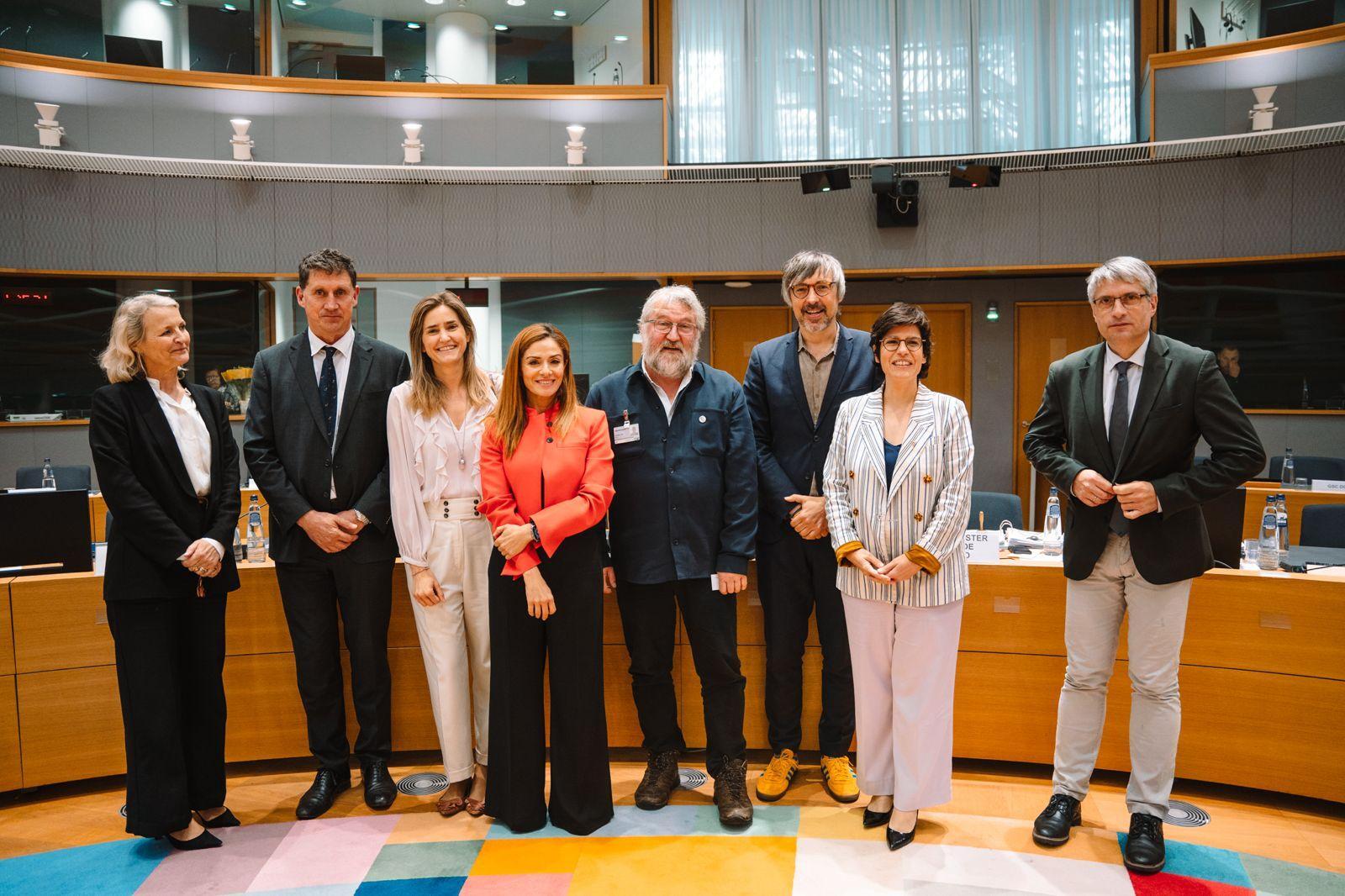
Opening speech European Energy Communities Forum by Minister Joseph Sikela - Prague
On the 13th of May, the first day of our Energy Communities Forum in Prague, we had a productive discussion with the Minister of Industry and Trade, Mr.Joseph Sikela. We exchanged on the potential and the vital role that energy communities can play in contributing to the energy transition of the Czech Republic and the Minister shared their plans on releasing new regulations to allow for the activity of energy sharing to be deployed by energy communities. We were glad to see that although energy communities are a very new concept in the Czech Republic, it has been warmly received by both the citizens, local authorities, the civil society, but also policy makers.
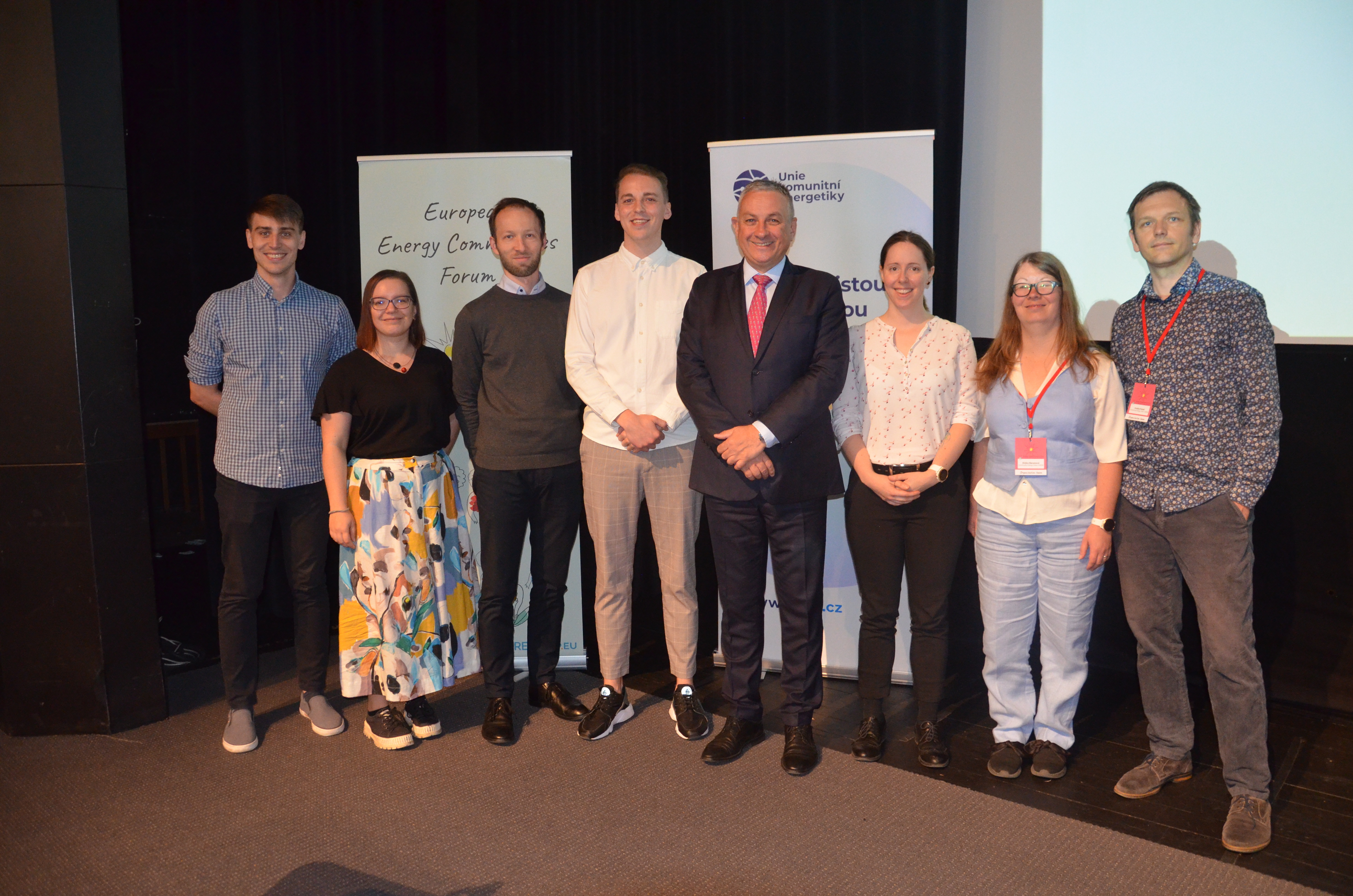
The Parliament’s support: endorsements for our Manifesto
With the European Elections around the corner, our Manifesto “Europe’s energy transition: active energy citizens take ownership”, outlining ten policy priorities for the upcoming term, has garnered significant attention among candidates for the European Parliament. Over seventy policymakers running for the EU elections from Belgium, Italy, France, Denmark, Greece, Portugal, the Netherlands, Croatia, Germany, and Spain have endorsed our Manifesto, proudly becoming Community Energy Supporters.
Our community energy narrative has resonated with policymakers across the political spectrum in various ways: increasing social acceptance of renewables, facilitating investment in the energy transition, and reimagining economies so that both rural and urban areas benefit from the Green Deal, ensuring no one is left behind. Additionally, it emphasizes strengthening local economies, enhancing energy independence and security, creating jobs, and developing local energy markets where consumers can purchase energy at stable and fair prices.
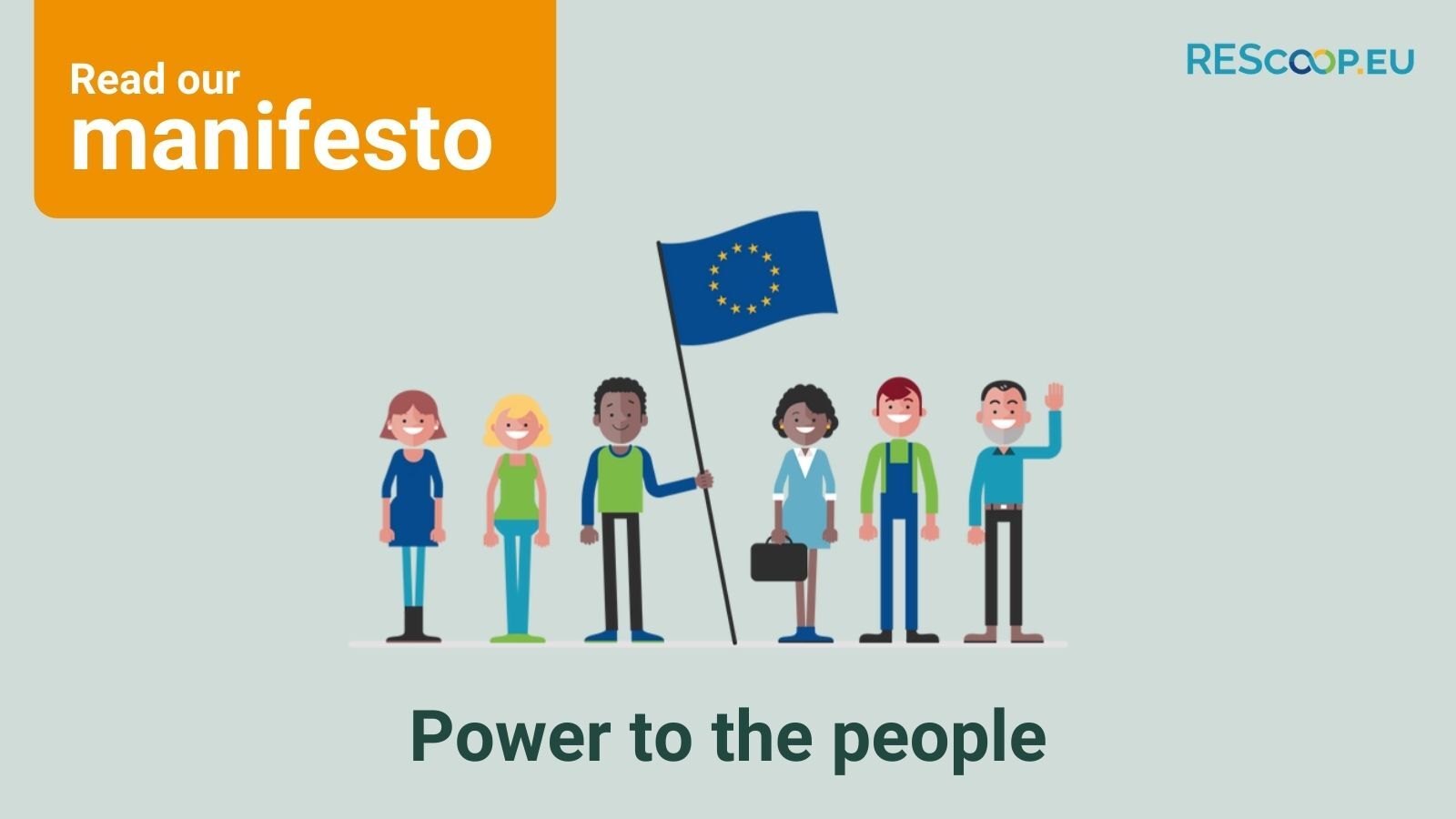
Conclusion
The journey towards a citizen-led and democratic energy future is being fueled by the collective efforts of policymakers, stakeholders, and citizens across Europe. The widespread endorsement of REScoop.eu's Manifesto and the invitation of REScoop.eu to high-level policy meetings in May is exemplary for a growing interest in energy community matters within the policy landscape. With continued support and collaboration, we can accelerate the energy transition, ensuring that it benefits all regions and communities. Together, we are making strides towards a greener, more democratic energy landscape in Europe.